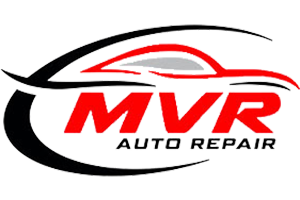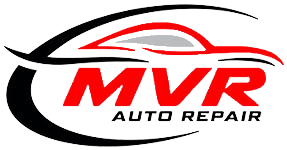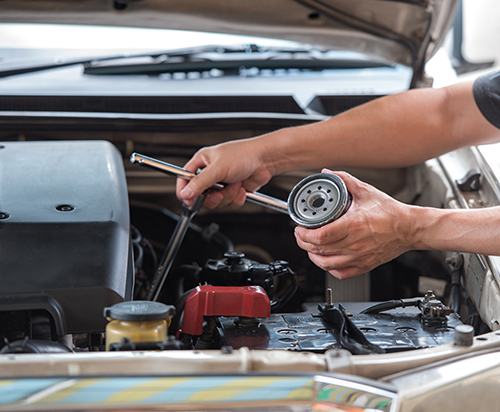
How do I know my vehicle needs a tune-up?
If your vehicle takes time to start, produces knocking sounds, or shows a decrease in gas mileage, then you should take it for a tune-up as soon as you can. As a rule of thumb, older vehicles should be tuned every 12,000 miles, whereas newer ones can go up to 100,000 miles without it.
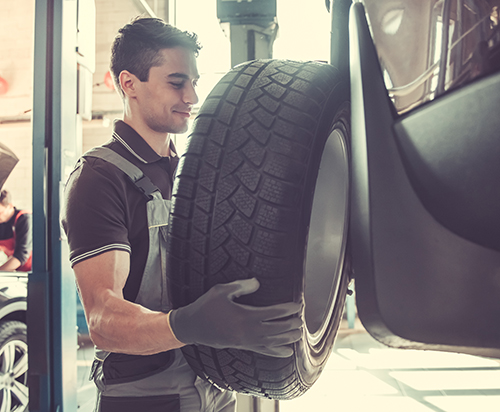
How often should I get my tires rotated?
Tire rotation can extend the life of your tires. Ideally, it would help if you got them rotated within 3000 to 5000 miles or once every six months. If not, then you can also get them turned every time you go for an oil change.
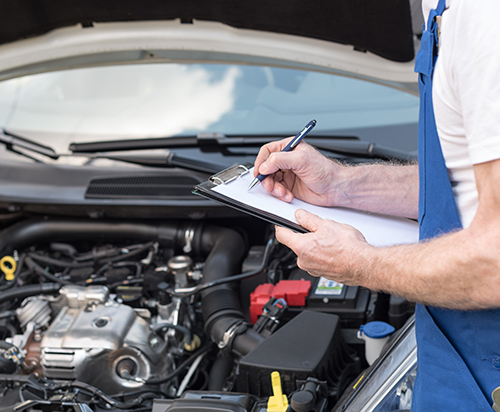
What is preventive maintenance?
Preventive maintenance refers to the regular checkup of your vehicle. It keeps it running smoothly and eliminates potential problems that may otherwise cost you tons of money. Besides that, it also improves the quality of your vehicle. The process includes oil change, battery change, hose inspection, windshield wiper service, and so forth.

Do I need an appointment for a repair?
It is not necessary. However, placing an appointment will save you time. In case of a busy day, it will prevent you from waiting for the staff to get free, and your vehicle will be repaired within the allotted slot.

Why do my brakes squeak?
Brake noises can be caused due to several reasons. You might be dealing with worn-out brake pads, broken anti-rattle clips, or lack of pad insulation. If the squeaks occur occasionally, then it’s okay. However, if it produces continuous grinding sounds, then chances are that you need to get new brake pads and shoes installed.
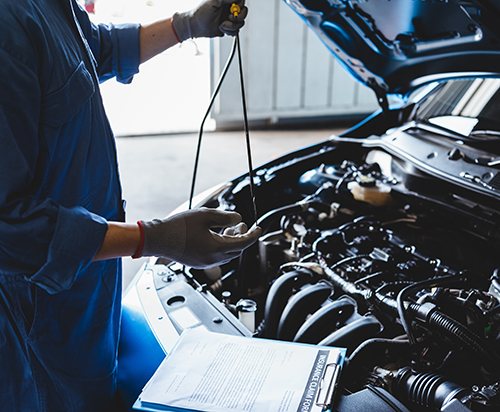
What happens if I do not get my oil changed?
If you choose not to get your oil changed, then your engine will break down much sooner. You see – oil acts as a lubricant; it ensures that the metal parts of the engine do not rub against each other and move smoothly. Moreover, old oil solidifies over time and leaves sludge in the engine.
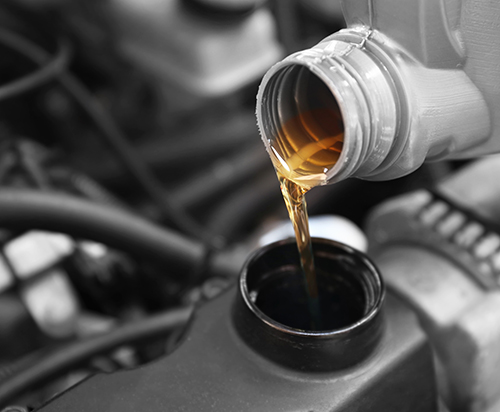
How do I know what oil to put in my vehicle?
Car owners often get confused among the various types of engine oils. The best way to find out what oil goes best with your car is to check the owner’s manual. It lists whether your vehicle uses synthetic or conventional oil.

What payment methods do you accept?
To ensure convenience, we offer flexible payment methods. You can pay with cash or through a credit card, Master card, or PayPal.
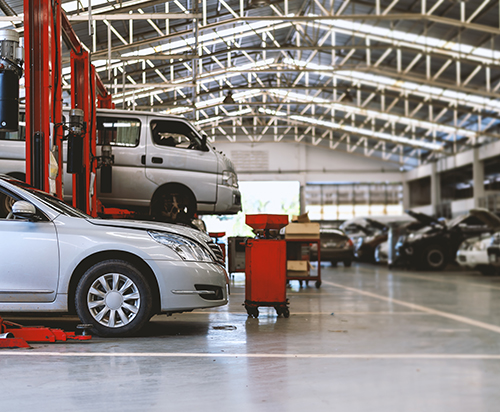
How long will it take to complete the repairs?
A minor repair like a bumper replacement or oil change takes less time and is sure to be completed on the same day. However, labor-intensive maintenance, such as engine overhauls, take us at least three days. In situations like these, you will be informed beforehand and provided with a ride back home.
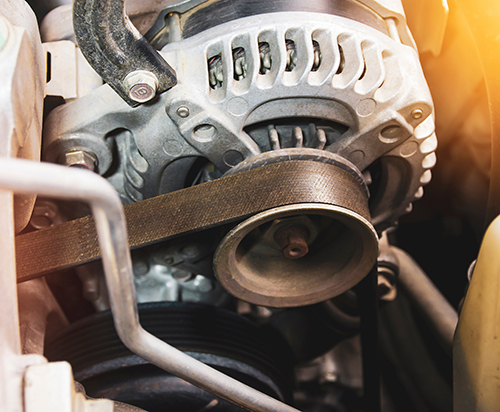
When do I get my belts and hoses replaced?
Belts and hoses should ideally be replaced every three years. If you notice cracks on the straps, then it is time for an upgrade. Similarly, if your hoses look swollen, you must get them replaced immediately.
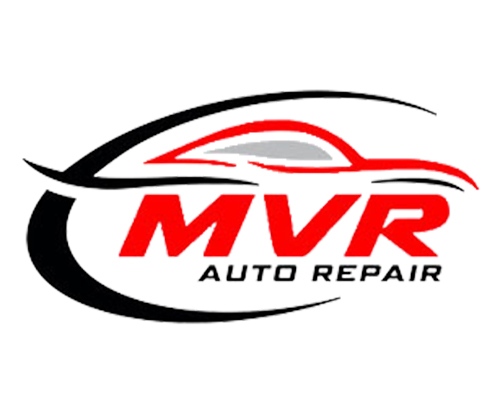
Why choose MVR Auto Repair?
Our staff consists of experienced mechanics and technicians who are passionate about fixing cars. They provide honest advice and carry out repairs with finesse. We install high-quality OEM automotive components that increase the durability of your vehicle. Moreover, our customers recognize us for our affordable rates and timely repairs.
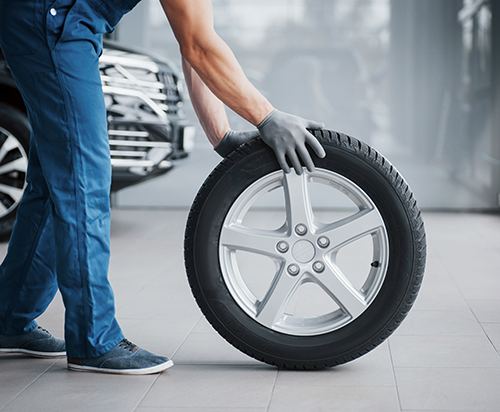
I need to get my tires changed. What now?
Call us at 702-255-2996 and place your appointment. Meanwhile, we will arrange high-quality Original Equipment tires for your vehicle, so you do not have to go through the hassle. Bring your car to our shop located in West Windmill LN, Las Vegas, and we will take care of the rest. Your car will be ready to hit the road within 30 minutes.
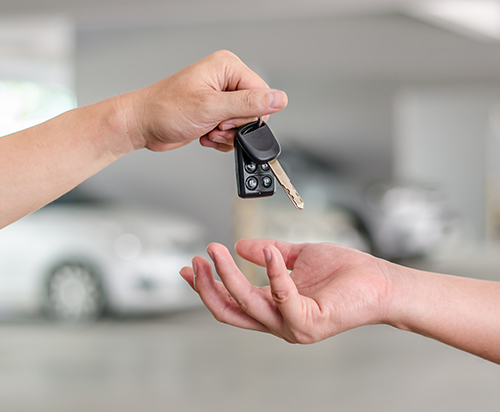
How do I know my car is ready for pickup?
We understand that your vehicle is an integral part of your everyday life. Please be assured that we do our level best to complete all repairs within the promised time. However, if delays occur due to unforeseen reasons, you will be notified immediately.

Why is my check engine light on?
The engine light indicates that something serious is wrong with your engine. If the dashboard gauges and lights show low oil pressure, immediately shut off the engine and get somewhere safe.
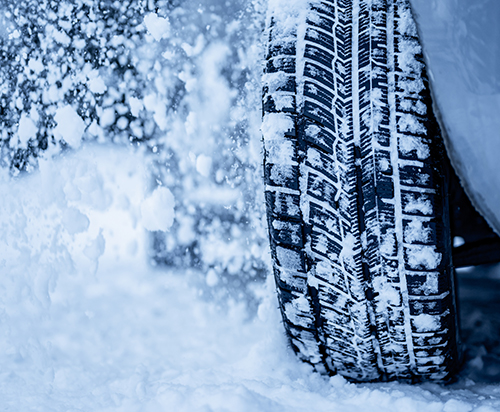
Do I need snow tires?
Snow tires are designed for winter conditions. If you are driving on snow or ice, then YES, you should opt for them. Otherwise, high-quality all-season tires are your go-to.
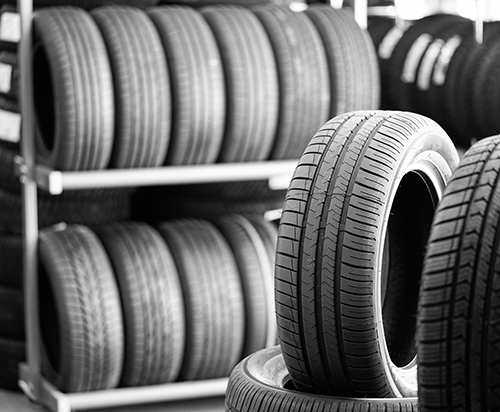
Is it possible to have two different brands of tires on my car?
We suggest you choose tires of the same brand, size, and tread pattern. This will help you achieve optimal comfort and safety while riding.
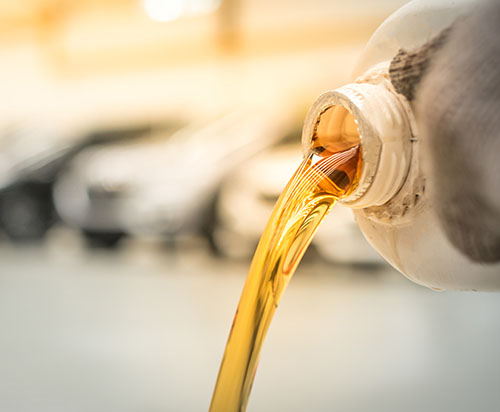
How to determine that your car needs an oil change?
An oil change is essential for the peak performance of your engine. It lubricates the meticulous automotive parts and keeps them from rubbing against each other. Therefore, to extend the life of your engine, you must change the oil once every three months. Even if you forget to do so, don’t worry – your car will make sure to remind you. The engine will produce rumbling sounds, and the oil change light will illuminate. Every time you drive, you will witness excessive smoke trails. Moreover, your car will vibrate violently even when it is idle.

What to do when your engine overheats?
Consider this: you are off for an exciting road trip, and suddenly you witness smoke coming out of your engine. Guess what? Your car is overheating, and you need to act right away.
• Firstly, do not panic. Find a safe place and pull over.
• Watch the temperature gauge and give the engine at least 15 minutes to cool down. The indicator should move back to a normal range.
• Call a tow truck and get your car transported to a repair shop; your engine must be professionally repaired.
• Or restart your engine and slowly drive to the nearest auto repair shop. But remember, if the temperature rises, you must shut off your car and wait for the gauge to move back to a normal range.
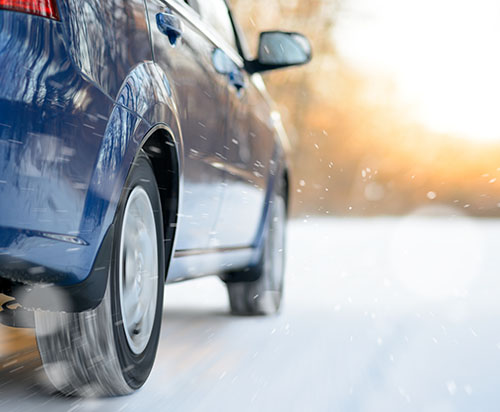
Quick tips to prepare your car for winter
Winter-proofing is essential if you want your vehicle to survive wintertime. The money you invest in minor repairs now will keep your car running throughout the season. Start by replacing your batteries, significantly if you have not changed them in over three years. This is also an excellent time to replace deteriorating tires and check the pressure of the existing ones. You can also invest in right quality winter tires that will keep you safe on icy inclines and wet roads. Lastly, invest in a set of good quality windshield wipers so heavy snow stays out of your sight.
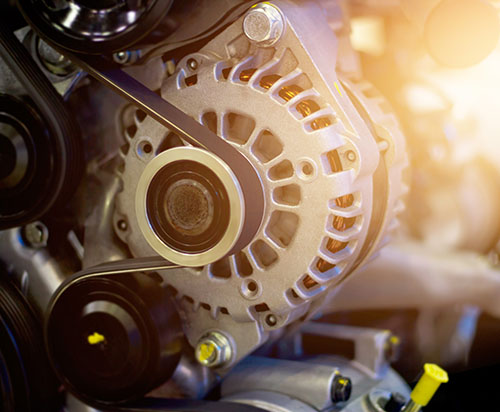
Useful tips to extend engine life
Your engine is the heart of your vehicle; the more you care for its maintenance, the better your car will perform. There are numerous ways to ensure that the car engine functions at its best. Visit your mechanic for an oil change after 3000 miles or once every three months. This will prevent your engine from forming metal-eating sludge and allow its machinery to function smoothly. It is also imperative to abstain from racing your engine during start-up. Moreover, if you do not want your engine to wear out, avoid accelerating at high speeds, especially during extreme weather. Lastly, do not forget to clean its air filter every 15,000 miles.
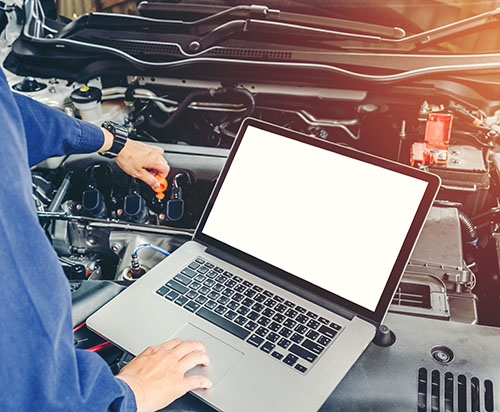
Things you should know before visiting a mechanic
Experienced mechanics ensure our vehicles stay healthy and safe. However, unprofessional mechanics suggest costly overhauls that your car doesn’t even need. It is, therefore, imperative to know what is wrong with your car before visiting a mechanic. If it is a minor repair, you can do your research on the web and pull it off yourself. In case of a significant repair, you should consult a certified mechanic who is well-reputed for his skills. Ask around in your social circle about their customer service or explore their social media pages to see what other customers have to say about them.
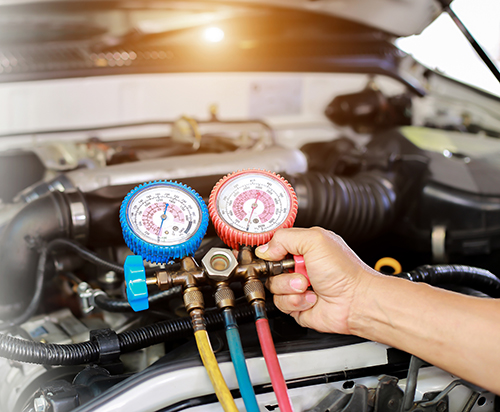
Reasons why your car’s AC is not cooling
Experienced mechanics ensure our vehicles stay healthy and safe.
There’s nothing more frustrating than a non-functioning AC. Not only does it make traveling unbearable, but it also makes you vulnerable to getting a heat stroke. Numerous factors contribute to broken air conditioning. The most common out of all are leaks or compressor issues. If you notice that your AC is blowing cold air but is not providing a chilly cooling, then you might be dealing with a clogged cabin filter. You can carefully take out the filter and clean it yourself. If it still doesn’t blow cold air, try recharging your AC.
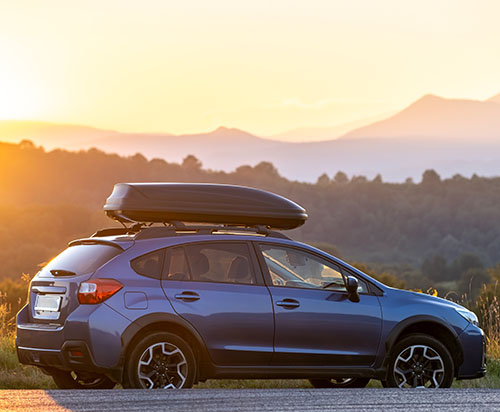
Most common summer car problems you should avoid
Higher temperatures bring a plethora of car problems. To avoid significant vehicle overhauls and inflated bills, you should be aware of some of these common summer car problems. Your engine can heat up and cause damage worth thousands of dollars. If you haven’t changed your battery in three years, it is likely to die this summer. Therefore, get it replaced before the weather gets hot. Heat can cause your car tires to lose pressure, so it is ideal for getting their pressure checked after regular intervals. Your brake fluids and engine oil can evaporate during heat waves. It would help if you got them professionally inspected and replaced so that your car runs smoothly throughout the summertime.
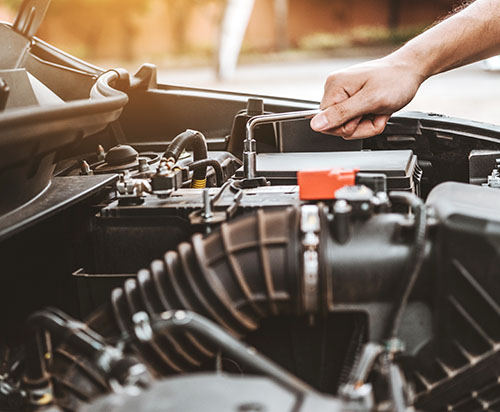
Essential car maintenance tips
Your car is a valuable investment. If you drive carefully and consult a professional mechanic regularly, then your car will last you for the longest time. Let us go over some essential maintenance tips that will enhance the quality of your vehicle and keep you safe. You should never delay an engine oil change; get it replaced after every 3,000 to 5,000 miles. And while you’re at it, get your tire pressure checked as well. If your battery has been running for more than three years, it is better to replace it before it dies and leaves you stranded. Examine the thickness of your brake pads; if they are too worn out, you should get them professionally replaced.
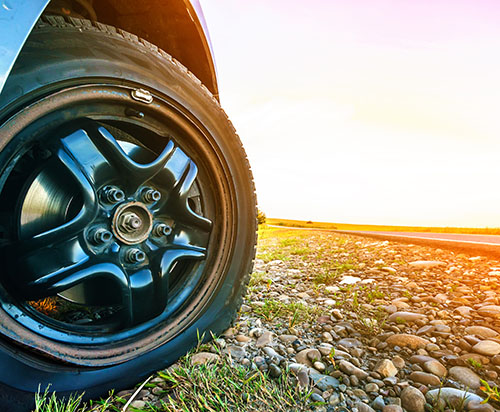
How to deal with a flat tire situation?
Consider this: you are heading for work, and your car’s acceleration starts lagging. Suddenly, you hear a loud “kaboom,” and you immediately pull over because one of your tires just got flat. First of all – do not panic! Turn on your hazard lights and shut your engine. Pull hand brake and keep massive rocks behind other tires, so the car does not slip away. Using a tire wrench loosen the tire nuts and, with the help of a jack, elevate the vehicle 2 inches higher. Remove the tire nuts and pull the tire off; place the spare tire in the same position and tighten the nuts. Remove the car jack and bring your car to the ground level. That’s it!
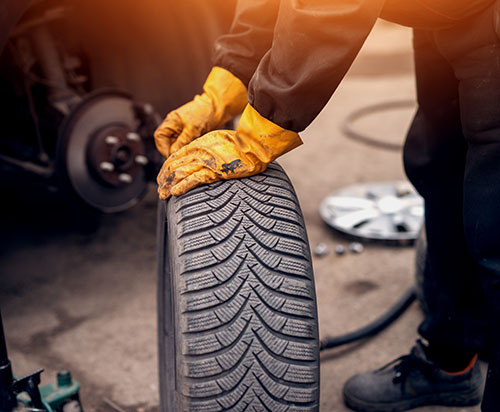
How long do tires last?
As a rule of thumb, a healthy set of car tires should last for 60,000 to 75,000 miles. However, numerous factors can extend or deteriorate their life. One of them is preventative maintenance. If you regularly get their pressure and alignment checked, then you are more likely to prevent them from getting flat. The type of tire also plays a vital role; every tire has different treadwear ratings, and thus, the life span can vary. If you are careless about the way you drive, then do not be surprised if your tires wear out before time. Therefore, be gentle with your acceleration.

Checklist to prepare your car for a road trip
An overheated engine or a flat tire situation is the last thing you want to experience on a road trip. Therefore, it is crucial to get the following maintenance and checkups out of the way before you head out for an exciting journey.
- Get your engine oil and brake fluid replaced.
- Check the pressure and alignment of your tires.
- Test your headlights, reverse lights, brake lights, hazard lights, and blinkers.
- If it is summertime, then get your AC tuned.
- Do not forget to carry necessary equipment such as a car jack, tire wrench, and tire pressure gauge.
- Install a new engine air filter.
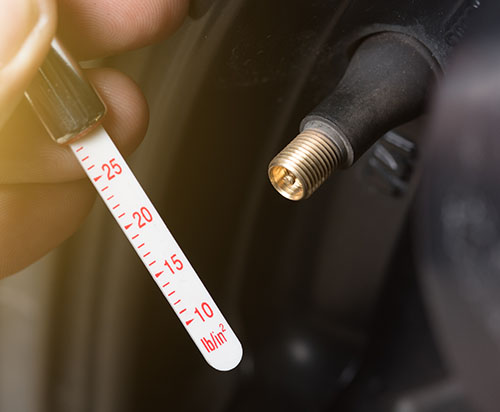
How to check tire pressure?
Underinflated and overinflated tires can result in premature tread wear. Therefore, every car owner should know how to check the tire pressure even in the absence of professional help. The process is simple and requires a tire pressure gauge and an air compressor. Refer to your manufacturer’s recommended PSI (pounds per square inch) and start with a cold tire. If your front and rear tires carry different pressure levels, note their PSI to avoid confusion. Start by removing the valve cap and push the gauge until the hissing sound disappears; a reading will appear on the screen. If the task is below your manufacturer’s recommendation, use the air compressor to refill that tire. You can repeat the process every month.
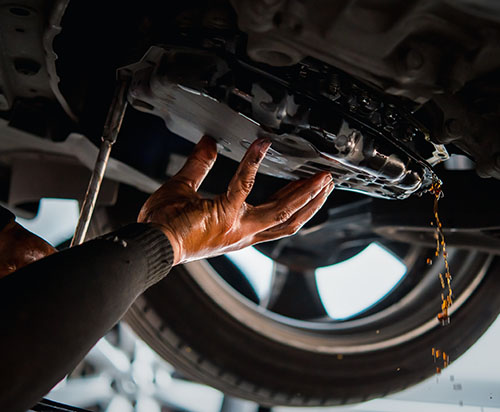
How to identify what fluid is leaking from your car?
Your car is filled with a variety of fluids that keep it running. If you notice a puddle under your car, do not panic. You can quickly identify what the mysterious fluid is and get it fixed accordingly. If the fluid is green in color, then you are dealing with a coolant leakage; if the fluid smells like gas, then your gas tank needs a replacement; if it is a yellowish-brown puddle, then it is probably engine oil. In this case, you need to get your engine checked immediately.
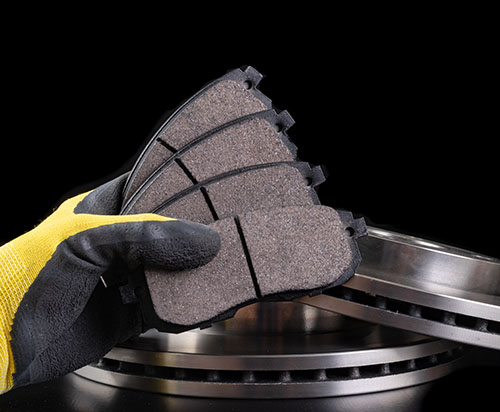
How to check brake pads?
Your vehicle’s braking system is crucial for your safety. As a car owner, you should be able to inspect your brakes and identify whether they require professional help. Otherwise, you might have to deal with a costly brake overhaul in the future. One way to check your brake pad is through the holes in the wheel. If the pads appear to be thinner than ¼”, then you should get them professionally replaced. Likewise, you can also examine them through the wear indicator slot; you should contact the brakes replaced if the place is barely visible. Besides that, if your dashboard warning light is illuminated, then that is your car signaling you to get an upgrade.
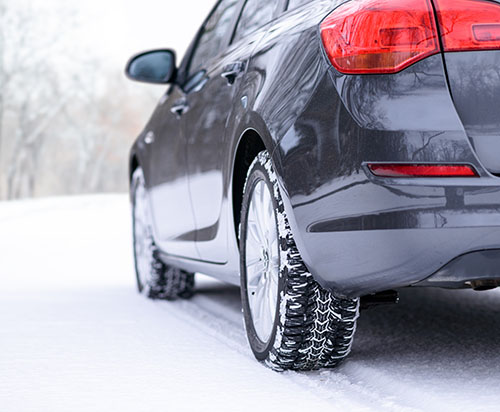
Tips for driving safely on winter roads
Wintertime is tricky for novice drivers. The roads are covered with snow, and hilly inclines are wet. Therefore, to avoid road accidents, it is essential to adopt new driving habits to drive on winter roads. First off, train yourself to go at a reasonable speed. If you rush your car, you are more likely to lose control. Your vehicle can skid and cause havoc for other drivers as well. Secondly, as a rule of thumb, make sure to drive away from the car in front of you. When it begins to snow, rely on your vehicle’s lights to improve visibility.
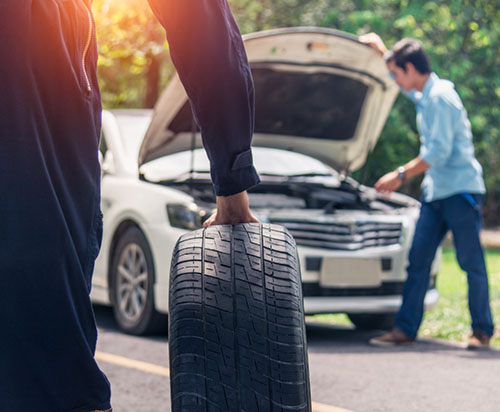
Winter tires VS summer tires
Winter tires provide a firmer grip on vehicles on slippery, snowy, and wet terrains. They have a more awesome rubber content, which keeps them soft and flexible even in temperatures below +7-degree C. Summer tires, on the other hand, are high performing tires ideal for warm weather conditions. They produce less friction and are more fuel-efficient.
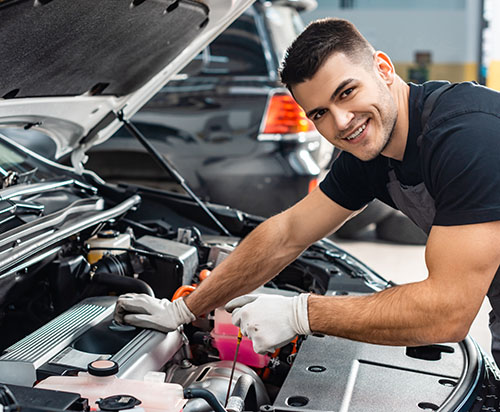
Traits of a great auto mechanic
Most of us wouldn’t visit an auto repair shop simply because we have dealt with an unprofessional mechanic before. Here are a few traits you can refer to while trusting a mechanic with your car.
- A great mechanic should have abundant automobile knowledge and exceptional repairing skills.
- They should possess excellent diagnostic skills, so the issue is detected immediately.
- Honesty is crucial; a great mechanic shouldn’t advise you for repairs that aren’t needed.
- They should provide excellent customer service.
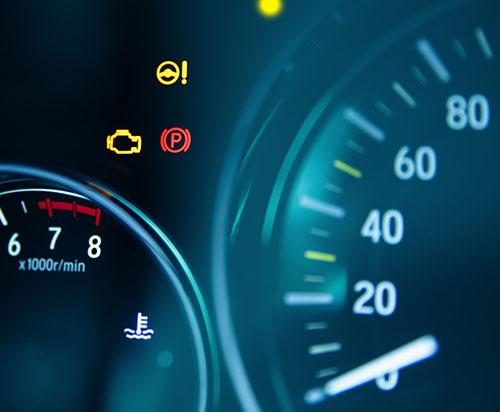
3 signs your car needs servicing
- The warning lights on your dashboard signal what’s wrong with your car. If a check engine light illuminates, then something serious is wrong with your car’s engine. Ignoring this sign might cause you engine damage worth thousands of dollars.
- If you hear scraping sounds from your car, then it is an indication of broken machinery. Likewise, if you hear squealing noises every time you push your brake, then your brake pads need an upgrade.
- If you notice an unusual lag in your acceleration, the chances are that your tires need servicing. The mechanic will check the pressure and install new ones if they’ve worn out.
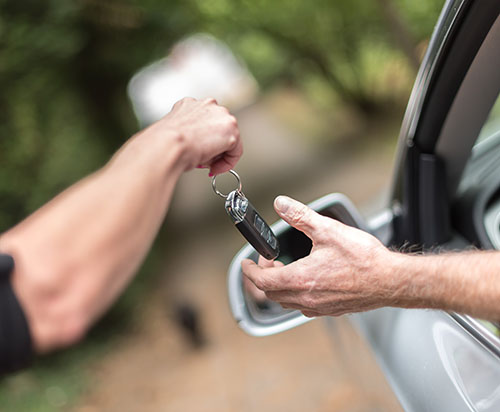
Things to check before buying a used car
When it comes to saving money, buying a used car is a good option. But sometimes dishonest dealers can sell deteriorating cars to people. To avoid such frauds, you must be aware of what to look for in a used car before sealing the deal. Take the car to a mechanic and get it inspected. This way, you will be sure about the car’s condition and your investment. If you cannot afford the inflated fee, check if there is any leakage such as engine oil, brake fluid, or gas leakage. You can also take the car for a test drive; this will help you determine the condition of the car.

How to save money as a car owner?
Owing to the increasing car maintenance prices, every car owner is looking for ways to cut down on inflated bills. Here are some quick tips that will help you save money without compromising on the quality of your vehicle. Don’t get lured into paying extra for premium fuels because they are unlikely to improve your car’s performance. Secondly, don’t leave your engine idle for too long; it will wear out within a matter of months. You can also save money by taking care of minor maintenance procedures, like checking tire pressure at home.
